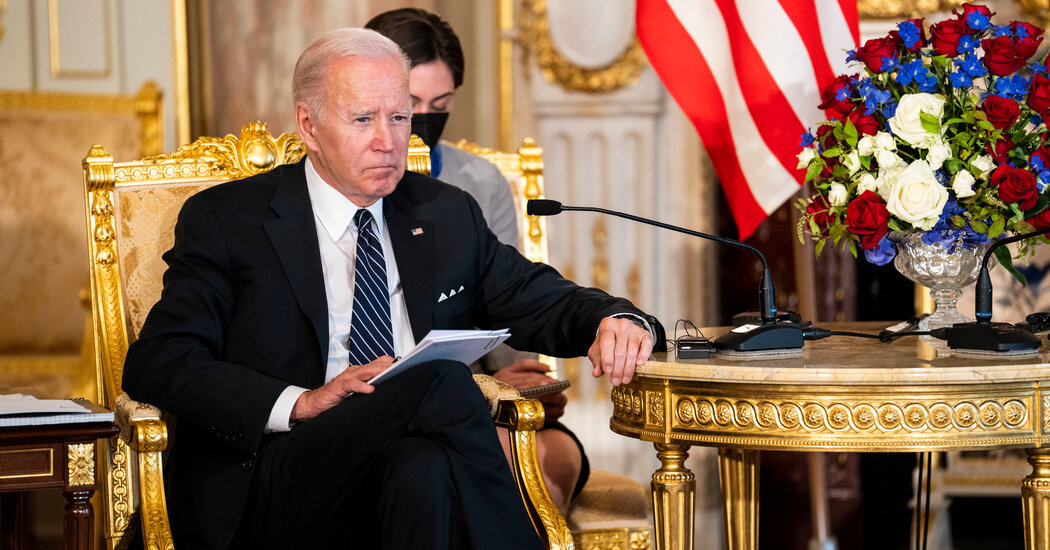
By that point, Mr. Biden’s staff knew he had gone further than it would have liked and sprang into damage control, cranking out with practiced efficiency the obligatory clarifying statement declaring that “our policy has not changed” and that Mr. Biden had merely “reiterated” America’s commitment “to provide Taiwan with the military means to defend itself.”
But Mr. Biden’s comment went beyond providing military means for Taiwan to defend itself and was widely seen as suggesting direct American military involvement.
Mr. Biden has ignored the strategic ambiguity of his predecessors with regard to China and Taiwan before. Last August, while reassuring allies that “we would respond” if there were an attack against a fellow NATO member, he added, “Same with Japan, same with South Korea, same with Taiwan.”
Taiwan, however, has never been granted the same U.S. security guarantees as Japan, South Korea or America’s NATO partners, so the comment was seen as significant. Two months later, Mr. Biden was asked during a CNN town hall if the United States would protect Taiwan from attack. “Yes, we have a commitment to do that,” he said.
Mr. Biden’s improvisation in Tokyo stirred a mix of reactions back in Washington, where some political leaders praised his candid support for an ally while others mocked him for indiscipline.
“President Biden’s statement that if push came to shove the U.S. would defend Taiwan against communist China was the right thing to say and the right thing to do,” Senator Lindsey Graham, Republican of South Carolina, wrote on Twitter.
On the other hand, Tommy Hicks Jr., a Republican National Committee co-chairman and close ally of former President Donald J. Trump, saw incompetence not courage. “Another clean-up job from the Biden spin room,” he wrote. “He cannot go overseas without saying something that his team has to walk back minutes later. It’s reckless and embarrassing.”




